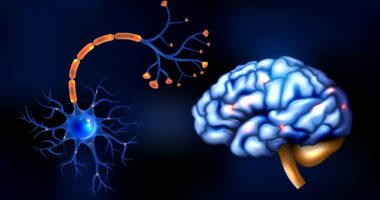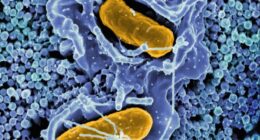A large number of people around the world suffer from an eating disorder. An eating disorder is an abnormal eating habit that negatively affects a person’s physical or mental health. Eating disorders can occur in people of all ages, genders, and races, regardless of weight, shape, and size. Physical, mental, and emotional symptoms vary from person to person. Treatment may combine cognitive therapy, medications, and other therapies.
Common eating disorders include anorexia nervosa (restriction of food intake), bulimia nervosa (binge eating disorder followed by purging), and binge eating disorder (frequent episodes of eating large amounts of food). These disorders can have serious consequences and usually require professional treatment.

Eating disorder symptoms can vary depending on the type of disorder, but some common signs include:
1. Significant weight loss or weight fluctuations.
2. Obsession with weight, shape, and body appearance.
3. Extreme dietary behaviours, such as strictly counting calories or avoiding certain food groups.
4. Concern about food, calories, and meal planning.
5. Compulsive exercise, even when injured or exhausted.
6. Distorted body image, consider yourself overweight even if you are underweight.
7. Social withdrawal or avoidance of social situations that involve food.
8. Mood changes, anxiety, or depression related to diet and body image.
9. Develop rituals around food, such as cutting food into small pieces or rearranging food on the plate.
10. Eating large amounts of food in a short period followed by feelings of guilt or shame.

Eating disorders can have various causes, including:
1. Genetic predisposition: A family history of eating disorders or other mental health problems may increase the risk.
2. Psychological factors: Low self-esteem, perfectionism, dissatisfaction with body image, and difficulty managing emotions or stress.
3. Social pressures: cultural emphasis on thinness, beauty standards, and media representation of ideal body types.
4. Traumatic experiences: History of abuse, harassment, or major life changes.
5. Biological factors: Imbalances in brain chemicals or hormones related to appetite and mood regulation.
6. Dieting and weight control behaviours: Extreme dieting, fasting, or obsessive calorie counting can trigger disordered eating habits.
7. Co-occurring mental health disorders: Depression, anxiety, obsessive-compulsive disorder (OCD), or substance abuse may be related to eating disorders.
8. Social influences: peer pressure, social networks, or norms regarding weight and appearance.
9. Family dynamics: dysfunctional family relationships, parental influence on body image, or history of eating disorders within the family.
10. Personality traits: perfectionism, rigidity, or a tendency toward impulsivity or sensation-seeking behaviour.

These factors often interact in complex ways, contributing to the development and maintenance of eating disorders.
Treatment usually involves a multidisciplinary approach that addresses the disorder’s physical, psychological, and social aspects. Treatment of an eating disorder usually involves a combination of medical, nutritional, and therapeutic interventions. Below are some common solutions:
1. Medical Follow-up: Periodic check-ups with a health professional to monitor physical health and treat any complications derived from the eating disorder.
2. Nutritional Guidance: Work with a registered dietitian to develop a balanced eating plan tailored to individual needs and goals.
3. Therapy: Cognitive behavioural therapy (CBT), dialectical behavioural therapy (DBT), or interpersonal therapy (IPT) can help treat the underlying psychological factors that contribute to the eating disorder.
4. Medications: In some cases, medications such as antidepressants or anti-anxiety medications may be prescribed to manage co-occurring mental health conditions.
5. Support Groups: Joining support groups or therapy groups specifically for people with eating disorders can provide a sense of community and encouragement.
6. Family involvement: Involving family members in therapy sessions or family-based therapeutic approaches can be beneficial, especially for adolescents with eating disorders.
7. Hospitalization or residential treatment: Hospitalization or residential treatment programs may be recommended in severe cases where medical stabilization is necessary.
8. Lifestyle changes: Develop healthier coping mechanisms and stress management techniques, as well as improve body image through activities such as yoga, meditation, or creative expression.
People suffering from eating disorders should seek professional help and support from loved ones. Recovery is possible with the right combination of treatment and support.









